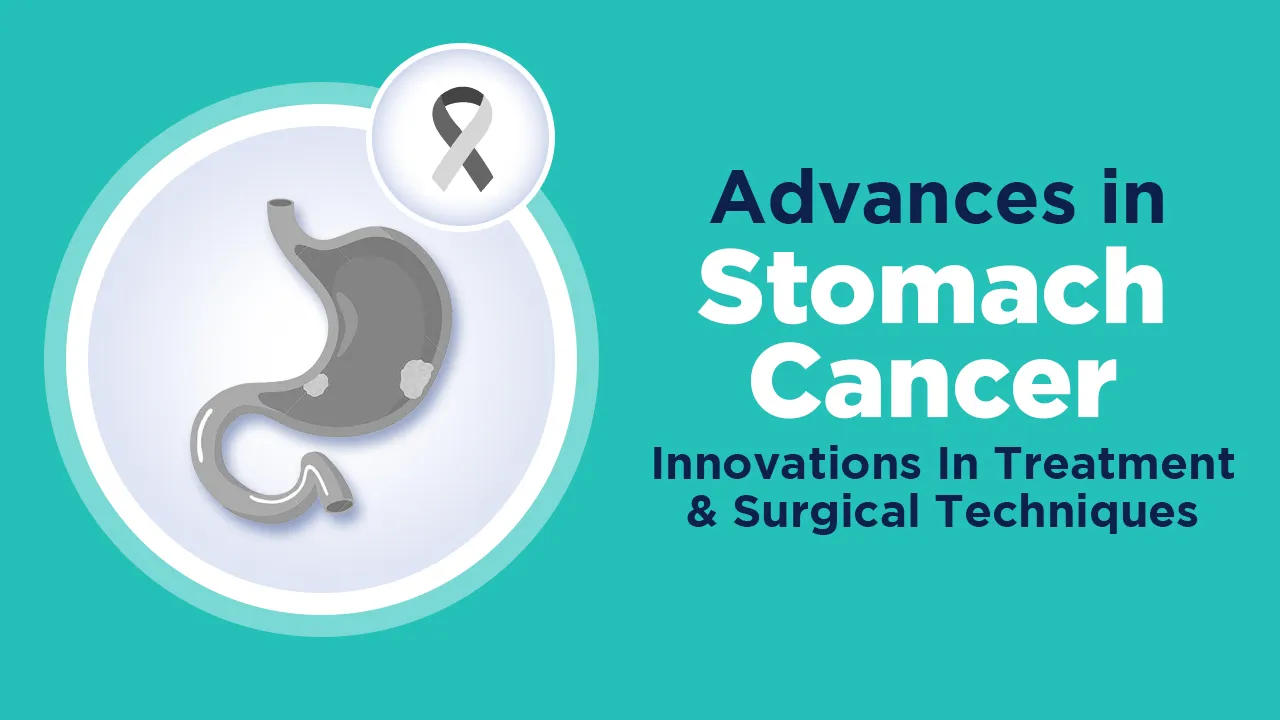listen this blog

listen this blog
Stomach cancer, also known as gastric cancer, remains a significant health challenge worldwide. Despite its complexity, recent advances in treatment and surgical techniques are providing new hope for patients.
This post explores the latest developments in the treatment of stomach cancer, focusing on surgical innovations that are transforming patient care.
Stomach cancer, also known as gastric cancer, remains a significant health challenge worldwide. Despite its complexity, recent advances in treatment and surgical techniques are providing new hope for patients.
This post explores the latest developments in the treatment of stomach cancer, focusing on surgical innovations that are transforming patient care.
Table of Contents
Understanding Stomach Cancer
Stomach cancer typically begins in the mucosa, the innermost layer of the stomach, and can spread to other parts of the stomach and beyond. The most common type is adenocarcinoma, which accounts for about 90-95% of all stomach cancers. Risk factors include infection with Helicobacter pylori, chronic gastritis, smoking, family history, and certain dietary habits.
Symptoms and Diagnosis
Stomach cancer often goes undetected until it has reached an advanced stage. Common symptoms include:
⦿ Persistent indigestion
⦿ Unexplained weight loss
⦿ Stomach pain
⦿ Nausea and vomiting
⦿ Feeling full after eating small amounts
Diagnosis usually involves endoscopy with biopsy, imaging tests (CT, PET scans), and sometimes laparoscopy to determine the extent of the disease.
Advances in Surgical Treatment
Minimally Invasive Gastrectomy
Minimally invasive techniques, including laparoscopic and robotic-assisted gastrectomy, have revolutionized stomach cancer surgery. These methods involve smaller incisions, which lead to:
⦿ Reduced post-operative pain
⦿ Shorter hospital stays
⦿ Faster recovery
⦿ Lower risk of complications
Robotic-Assisted Surgery
Robotic-assisted surgery offers enhanced precision, flexibility, and control. This approach is particularly beneficial for complex surgeries involving the stomach. The 3D visualization and dexterity of robotic instruments allow surgeons to perform delicate procedures with greater accuracy.
Endoscopic Resection
For early-stage stomach cancers confined to the mucosa or submucosa, endoscopic resection techniques such as Endoscopic Submucosal Dissection (ESD) are highly effective. This method involves removing the tumor through an endoscope, avoiding the need for more invasive surgery. Benefits include:
⦿ Preservation of stomach function
⦿ Minimal recovery time
⦿ Excellent outcomes for appropriate candidates
Multidisciplinary Approach and Personalized Medicine
Treating stomach cancer requires a collaborative approach involving surgeons, oncologists, radiologists, and pathologists. Personalized treatment plans are tailored based on the tumor’s stage, location, and genetic profile. This ensures that each patient receives the most effective and individualized care.
Neoadjuvant and Adjuvant Therapies
⦿ Neoadjuvant Therapy: Administered before surgery, this includes chemotherapy and radiation therapy to shrink the tumor and increase the chances of successful surgical removal.
⦿ Adjuvant Therapy: Given after surgery, adjuvant therapy aims to eliminate any remaining cancer cells, reducing the risk of recurrence.
Targeted Therapies and Immunotherapy
Advances in molecular biology have led to the development of targeted therapies and immunotherapies, providing new options for stomach cancer treatment.
⦿ Targeted Therapies: Drugs targeting specific molecules involved in cancer growth, such as HER2 and VEGF, have shown promise in treating advanced stomach cancer..
⦿ Immunotherapy:Immune checkpoint inhibitors like pembrolizumab are being explored for their potential to boost the body’s immune response against cancer cells.
Supportive Care and Quality of Life
Managing side effects and maintaining quality of life are crucial aspects of stomach cancer treatment. Nutritional support, pain management, and psychological counseling are integral components of comprehensive care. Support groups and patient education resources can also help patients and their families navigate the challenges of living with stomach cancer.
Conclusion
The treatment landscape for stomach cancer is evolving rapidly, with significant advancements in surgical techniques and personalized care approaches. Minimally invasive surgeries, robotic-assisted procedures, and innovative therapies are improving outcomes and offering hope to patients. Staying informed about these developments can empower patients and their families to make informed decisions and seek the best possible care.
For more information on stomach cancer and its treatment, visit reputable sources like the [American Cancer Society](https://www.cancer.org/cancer/stomach-cancer.html) and the [National Cancer Institute](https://www.cancer.gov/types/stomach).
- Stay tuned for more updates on the latest in gastrointestinal and hepatopancreatobiliary oncology.

